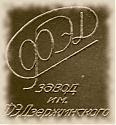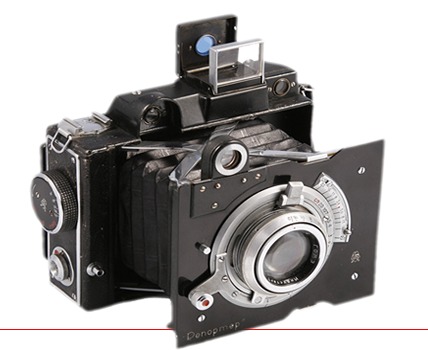| Author |
 Topic Topic  |
|

Milo Schekkerman
Valkir1987
Netherlands
209 Posts |
 Posted - Jan 30 2015 : 3:50:40 PM Posted - Jan 30 2015 : 3:50:40 PM



|
After measuring a couple of lenses and body's I am currently doubting the fact that only the Fed 1g series lenses and bodies had been standardized.
It has been claimed that all other Fed 1 models camera's had their lenses calibrated to the body individually. At the moment I am really doubting this. I think that at a certain stage of production there was a standard and lenses where no longer matched individually to accept other lenses from the Fed series.
This is what I have measured and experienced:
Fed 1f : Working distance 28.70mm different pitch entry than other models (measured on several cameras)
Fed 1c : Working distance 28.55mm to work with the Fed 2.0/50 and 6.3/100 (I measured this on three lenses, including a Fed 3.5/50 that came with the camera)
What do you think?
|
Edited by - Valkir1987 on Feb 08 2015 06:05:21 AM |
|
Jacques M.
France
2668 Posts |
 Posted - Jan 31 2015 : 03:06:14 AM Posted - Jan 31 2015 : 03:06:14 AM


|
I think too.
Probably even the S were calibrated to receive all the lenses of the production: 2/50, 6,3/100 and 4,5/28. If not, it would not be coherent.
We have already discussed on this matter, I think. No real answer till now. The first thing would be to check all my Fed S...
Amitiés. Jacques. |
 |
|

Alexander K.
AlexanderK
Germany
601 Posts |
 Posted - Jan 31 2015 : 05:11:12 AM Posted - Jan 31 2015 : 05:11:12 AM


|
So far as I know for all FED cameras only the "set"-lens (the lens, that was sold with this camera) has matched exactly the camera. All another lenses had to be calibrated before it could be used with the camera. These lenses could also work without calibration, but the quality was not guaranteed.
Regards, Alexander |
 |
|
Lenny
496 Posts |
 Posted - Jan 31 2015 : 10:27:37 AM Posted - Jan 31 2015 : 10:27:37 AM


|
quote:
Originally posted by Valkir1987
This is what I have measured and experienced:
Fed 1f : Working distance 28.70mm
Fed 1c : Working distance 28.45mm
How do you measure the difference of 0.25mm?
And besides that, some bodies might be so weak that the distance will change when pressing the body with the fingers. |
Edited by - Lenny on Jan 31 2015 10:28:49 AM |
 |
|
Jacques M.
France
2668 Posts |
 Posted - Feb 01 2015 : 07:16:26 AM Posted - Feb 01 2015 : 07:16:26 AM


|
At least, it's difficult (or even impossible) to measure it with a caliper.
The springs, behind the pressure plate, don't allow that easily. If I remember, there is a special tool made by Corfield for their Periflex to regulate the 28.8mm correctly.
Jacques. |
 |
|

Milo Schekkerman
Valkir1987
Netherlands
209 Posts |
 Posted - Feb 01 2015 : 09:59:17 AM Posted - Feb 01 2015 : 09:59:17 AM



|
Thanks for your replies. I own an autocollimator lately, there are three way's I measured:
-Using a special depth caliber with a measuring clock on the body with film in the camera.
-Measuring the working distance of the lens with the auto collimator on a measuring 'crate' with a mirror which height can be adjusted with shimming plates.(very bright and accurate way to determine the working distance)
-Measuring the lens on the body with film inside the camera. (you can see the light reflected on the emulsion, showing if the lens focussus on infinity on the film.)
The bodies of these Feds are quite sturdy, they won't deform easily. |
 |
|
Jacques M.
France
2668 Posts |
 Posted - Feb 01 2015 : 12:05:15 PM Posted - Feb 01 2015 : 12:05:15 PM


|
Hi Milo,
I think too that the bodies are rigid enough.
I have tried with a caliper. Not so easy because of the spring under the filmplate.
Some measures taken on some cameras:
s/n 5530 : 28,9 (1a)
5431 : 28,2 (1a)
7421 : 28,8 (1b)
59349 : 28,3 (S 1c)
97298 : 28,2 (S 1d)
164433: 28,8 (S 1d)My "daily" Fed.
183231: 28,6 (1e)
210921: 28,3 (1f)
213495: 28,2 (1f)
232140: 28,9 (1f)
250726: 28,9 (1f)
352352: 28,9 (1g)
465618: 28,9 (1g)
708667: 28,9 (1g)
It seems that the standardization occurred somewhere in the 1f series. But some earlier cameras can have been improved... I thought that the S could have been standardized before others. Probably not: the lenses were regulated one by one, like on the Leica I(C).
If we keep in mind that the film is about 1/10th mm thick, the 1f (but not the very early ones) and the 1g only seem standardized at 28,8mm.
Another question: were prewar films thicker than actual ones? Probably...
Amitiés. Jacques. |
Edited by - Jacques M. on Feb 01 2015 12:07:56 PM |
 |
|

Milo Schekkerman
Valkir1987
Netherlands
209 Posts |
 Posted - Feb 02 2015 : 12:58:58 PM Posted - Feb 02 2015 : 12:58:58 PM



|
That's a great imput Jacques, thank you! 
Film thickness varies indeed, even today sometimes. In some camera's the film indeed runs and fits in its own guiding rail. I am wondering if this is the case on the Feds, another thing to find out.
Sometimes shimms are added or removed when a camera was serviced, the autocollimator allows me to measure directly on the lens. |
 |
|

Milo Schekkerman
Valkir1987
Netherlands
209 Posts |
 Posted - Feb 08 2015 : 06:16:12 AM Posted - Feb 08 2015 : 06:16:12 AM



|
I have rectified 28,45mm it had to be 28.55, my apologies!
The puzzle becomes more complicated. All of these lenses have the same thread pitch entry, exept the 28mm 4.5! Which has a Leica thread pitch entry. (I don't know the exact term, but its where the lens stops at infinity when you mount it on the camera) All of these lenses have the same thread pitch entry, exept the 28mm 4.5! Which has a Leica thread pitch entry. (I don't know the exact term, but its where the lens stops at infinity when you mount it on the camera)
The two top 50mm lenses on the left have a blue aperture.

I also wondered if the 100mm exists in a blue aperture version as well. |
 |
|

Milo Schekkerman
Valkir1987
Netherlands
209 Posts |
 Posted - Feb 08 2015 : 09:55:55 AM Posted - Feb 08 2015 : 09:55:55 AM



|
On special request  , the measurement devices: , the measurement devices:
The autocollimator and the measuring crate with shimms for the mirror. It can be used on the camera too, when you use reflecting film.

A tool for measuring the travel of a lens from 1m to infinity, the depth caliber and last but not least a micrometer to measure shimms.
 |
 |
|
Jacques M.
France
2668 Posts |
 Posted - Feb 08 2015 : 10:31:13 AM Posted - Feb 08 2015 : 10:31:13 AM


|
My request is satisfied!
All that is quite serious. Of course, compared with my caliper as only tool...
Merci, Milo!
Jacques. |
 |
|
| |
 Topic Topic  |
|
